How Much of a Game Ought to be Played?
or: justifying the act of abandoning bad games to myself and nobody else
21 Games
All of it, right? At least, you'd hope.
I've got a bit of a complex about dropping games, in that it leaves me feeling remarkably unqualified to talk about something I didn't finish. It's less a matter of fairness – I don't feel any compulsion to "be fair" to the media I consume – and more a matter of fearing that my under-education results in me being wrong. I've played games that started great and ended badly, and I've played games that started badly and ended great; if I abandon something, do I have any right to speak on it? I've barely done enough investigation to justify having an opinion.
I've got a bit of a complex about dropping games, in that it leaves me feeling remarkably unqualified to talk about something I didn't finish. It's less a matter of fairness – I don't feel any compulsion to "be fair" to the media I consume – and more a matter of fearing that my under-education results in me being wrong. I've played games that started great and ended badly, and I've played games that started badly and ended great; if I abandon something, do I have any right to speak on it? I've barely done enough investigation to justify having an opinion.
What inspired this list was me streaming Buddy Simulator 1984 to a few friends in order to see how they'd react to it. I thought it was dreck, of course, but I wanted to know what they thought of it. I was entirely unsurprised to find out that they hated it, and they rated the game accordingly. They felt that seeing it be played gave them an experience equivalent (or at the very least, comparable) to playing it for themselves.
But they didn't actually play it.
But they didn't actually play it.
This is not a new phenomenon. While I can't find anything to back this statement up now, I recall there being talks at Telltale's peak about how people watching the Let's Plays of their games actually managed to hurt their bottom line. A significant number of people (understandably) felt as though there was no need to play the game for themselves, and that watching someone else play it provided a similar enough experience that they didn't need to bother picking up a controller. They believed that they got the same experience — at the very least, enough of the same experience — that they never even needed to play the game.
I can't imagine that this is something that everyone would agree upon. Surely there are a massive number of holdouts who would be adamant that you can't review a game without playing it. If there's an argument to be made here, then how much of a game ought to be played?
I can't imagine that this is something that everyone would agree upon. Surely there are a massive number of holdouts who would be adamant that you can't review a game without playing it. If there's an argument to be made here, then how much of a game ought to be played?
Backloggd — ignoring both Mr. Prog and the broader community to focus only on "Backloggd" as a framework — is quite agnostic regarding the issue. When selecting how one played the game, there's an option to declare simply that you watched it rather than played it, and thus watching a game is considered a valid form of engagement on par with playing it. Similarly, when selecting your final status on the game, the criteria for "Completed" states that you "beat your main objective" with regard to that game. What this main objective is remains up to the person logging the game, giving one a very broad selection of what counts as "completed"; rolling credits, getting to the mid-point, or simply booting and closing the game all theoretically count towards the same state of user-defined "completion", as any of these can be one's main objective.
This is not to critique Backloggd, or its users, or Prog; it's instead meant to demonstrate that "how much of a game ought to be played" is a far more difficult question to answer than one might imagine. The website is fairly rigid with regard to other matters: users can use a ten-point scale, an optional five-point scale, or give a game no score, but no other scoring options are supported by the website. A movie critic four-star scale is impossible, as is an IGN-style hundred-point scale. If you wish to use one of these scales, you have to declare it within the body of a review, but this will have an adverse effect on the average rating of the game that you're reviewing.
Say, for example, you use a four-star scale, meaning that the highest possible score is four stars. Giving a game four stars on Backloggd counts as an 80% rating against the game in question (with a ten-point rating assumed as the default), when, by your metric, it should count as a 100%. A user with a five-point scale will always be 10% above or below their intended ranking for a game, as their reviews are measured against the ten-point scale. Backloggd is strict in this aspect, and thus the definition of "completed" as "beat your main objective" should be seen as remarkably lenient by comparison.
Say, for example, you use a four-star scale, meaning that the highest possible score is four stars. Giving a game four stars on Backloggd counts as an 80% rating against the game in question (with a ten-point rating assumed as the default), when, by your metric, it should count as a 100%. A user with a five-point scale will always be 10% above or below their intended ranking for a game, as their reviews are measured against the ten-point scale. Backloggd is strict in this aspect, and thus the definition of "completed" as "beat your main objective" should be seen as remarkably lenient by comparison.
The obvious solution is to introduce more options under the played tab that would allow for users to select more granular options that are specific to them, but this introduces at least as many problems as it solves. We would then have an obscene amount of potential options that would still remain up to the user's definitions, as a statement like "rolled the credits" would be meaningless in a game that rolls the credits multiple times or tricks the player with a fake ending. This is not a viable fix, and that assumes you agree that this is at all a "problem" to begin with.
"It depends on the player" is an answer that doesn't satisfy me, and neither does "it depends on the game". This is probably the best that we can do, but the rigidity demonstrated in Backloggd's mandatory ten-point scale demonstrates that strict completion criteria are theoretically something that could be enforced rather than agreed upon. I'd like to investigate a further, more universal option that I believe many already employ, even if they may not know it.
What I imagine the most amount people will agree on as the definition of "completed" is "beat the game". Played it until the end — until a victory screen, or the end credits, or Tobey Macguire telling you that it's time to go outside and play.
9
Of course, some games are literally unbeatable. Whether it be by mistake...
...or because they were designed to never end...
11
...or because the designers were making a point.
Backloggd does offer the option to count a game as "retired" if it "lacks an ending", which ultimately doesn't answer how much of the game ought to be played. In Counter-Strike, should players aim to achieve a specific rank before they've "played enough" of the game to justify reviewing it? Should Fall Guys players be required to record at least one win before they've "played enough"? Do World of Warcraft players need to do raids, or are the main questlines "enough"? Marking games as retired doesn't give us an answer.
13
Many arcade games only "end" when the player comes to a kill screen, such as reaching level 256 in Pac-Man. This is as close as we can get to a defined "ending" for these seemingly-endless games, and there have been several players throughout the years who have managed to successfully reach these kill screens. The overwhelming majority of people who play these games will never reach these kill screens themselves, and therefore they will never truly "beat" the game in question; even so, I imagine that many would agree that not reaching a kill screen is irrelevant, and that a player could still be thought to give a reasonable review without ever "beating" the game. It should be clear from this that beating a game is not required in order to give a serious review that is accepted as legitimate by readers.
For a game like Cyberpunk 2077, sticking to the critical path only will result in the player missing an absurd amount of narrative and gameplay developments that are relegated to the side jobs; the overwhelming bulk of the stories surrounding Judy, Panam, River, Kerry, and Johnny Silverhand are all contained within this "side" content that feels so important that I genuinely don't understand why it wasn't rolled into the main story. A player who ignores these side missions will likely wonder what ended up happening to all of these characters, and feel like the stories they were given ended up being surprisingly thin. Of course, the player doesn't need to 100% the game to get this experience — the gigs, for example, are mostly just one-off missions where you go to a place and kill people with little overall plot relevance — but I'd say that someone who didn't dedicate the time to doing the side jobs would definitely have come away with a lesser experience and a lack of information to use in a potential review. Given this, it wouldn't be unreasonable for one to assume that a person had "more authority" to speak on a game that they had 100%ed rather than someone who hadn't.
Thankfully, though, we do at least know that there's an upper bound; the point where playing even more of the game doesn't really add much to the legitimacy of your argument. Joseph Anderson (in)famously 100%ed Super Mario Odyssey not once, but twice for his "It's No Masterpiece" video. While it remains a bit of an understatement to call this video divisive, what seems to be almost unilaterally agreed upon by defenders and opponents of Anderson is the fact that he really did not need to 100% the game twice to confirm that he didn't like it. We can define the point of diminishing returns here with near-certainty, but I'm confident that the true point of diminishing returns is exactly at the 100% completion mark. I can't imagine many people asking for more than that.
But of course, 100%ing a game doesn't necessarily imply mastery, only dedication. Neural networks running on fairly low depths have been able to beat every stage in games like Super Mario Bros., meaning that these computer models have, by every definition of the term, 100%ed games. Yet we wouldn't trust what a simple neural network would have to say regarding an opinion on these games. It sounds absurd when its phrased that way, but it's true. The neural net would "know" only that when it provides a set of inputs in a certain sequence, it is rewarded; it would not have an understanding of the game it was playing.
With all of the above in mind, I think the only real way to come to terms with when you can review a game is when you've developed a sufficient understanding of the whole and its elements.
This is, of course, even more open to interpretation, but it at the very least serves as a universal option. If a player can demonstrate at any point in their experience that they've developed a sufficient understanding of the game in question, then completing the game exists only as a formality. Most games — most pieces of media — require the viewer to stay until the end to develop an understanding of what they are, so this is more a criterion that rejects the abandoning of games rather than encouraging it.
This is, of course, even more open to interpretation, but it at the very least serves as a universal option. If a player can demonstrate at any point in their experience that they've developed a sufficient understanding of the game in question, then completing the game exists only as a formality. Most games — most pieces of media — require the viewer to stay until the end to develop an understanding of what they are, so this is more a criterion that rejects the abandoning of games rather than encouraging it.
The reality, it would seem, is that some games genuinely are simple enough to not require a full playthrough to be understood. These often aren't the kinds of titles that one would expect to be reviewed highly; a player who drops off midway because they feel they've seen enough likely didn't enjoy it enough to think it warranted further play. There's an "I get it" threshold that the best games seem to skirt around, and the worst games seem to linger in.
How many critical points should the fight against King Dodongo have once you've realized that he needs to be fed bombs to become vulnerable? Should it only be once? Thrice? Ten times? A hundred? At what point does the player understand?
Once the player meets the "I get it" threshold, they've demonstrated enough understanding — enough investigation — that their opinion cannot be invalidated.
Once the player meets the "I get it" threshold, they've demonstrated enough understanding — enough investigation — that their opinion cannot be invalidated.
Ultimately, it's up to the reviewer to decide when they've seen enough, and it's then up to the readers to decide if the reviewer actually has. If your audience doesn't believe that you've sufficiently understood the work, then you've either missed some critical pieces or you've written your review in a way that fails to capture your understanding.
It's important to remember that the act of writing a serious review — of playing the game, of writing out your thoughts, of publishing it online — is an act of performance. A review is for the readers, and they can (and should!) judge your work the way that you've judged someone else's. Regardless of if you love or hate the work, what matters is that you're able to communicate to your readers that you understood it.
It's important to remember that the act of writing a serious review — of playing the game, of writing out your thoughts, of publishing it online — is an act of performance. A review is for the readers, and they can (and should!) judge your work the way that you've judged someone else's. Regardless of if you love or hate the work, what matters is that you're able to communicate to your readers that you understood it.
Anyway, Buddy Simulator 1984 is a piece of shit and I didn't need to finish the game to tell you that.
5 Comments
going through the reviews and seeing that bud lite simulator made them CRY really made me stop and think.
we are friends. we are such good friends and by the way this is me speaking directly into your ear and telling you that we are friends. We are actually best friends and this game? I made it for you because we are actually best. Friends. Ok now go talk to this character but dont talk to them too because because we are the only friends. Why arent you listening to me when i Told you we were best friends. Youre such a shit fuck friend and i fucking hate you. Neutral ending for you.
we are friends. we are such good friends and by the way this is me speaking directly into your ear and telling you that we are friends. We are actually best friends and this game? I made it for you because we are actually best. Friends. Ok now go talk to this character but dont talk to them too because because we are the only friends. Why arent you listening to me when i Told you we were best friends. Youre such a shit fuck friend and i fucking hate you. Neutral ending for you.
@HotPicklePizza thank you i strive only to have good thoughts
@moschidae i do try not to dunk too hard on people for having a very different experience to mine even if i do find it to be a little silly. at the end of the day it's harmless. i think buddy simulator is a soulless and remarkably badly written game but if it managed to move you then that's what it accomplished for you. going in too hard on people for having bad game opinions is an act of inviting vampires into my home to do the same to me. all it would take for me to crumble like a house of cards would be for someone to tell me that disco elysium is cringe because i just wouldnt be able to deny it
@moschidae i do try not to dunk too hard on people for having a very different experience to mine even if i do find it to be a little silly. at the end of the day it's harmless. i think buddy simulator is a soulless and remarkably badly written game but if it managed to move you then that's what it accomplished for you. going in too hard on people for having bad game opinions is an act of inviting vampires into my home to do the same to me. all it would take for me to crumble like a house of cards would be for someone to tell me that disco elysium is cringe because i just wouldnt be able to deny it
I try to write my completion Criteria for reviews if I remember (and it is actually a review).
I know the argument is "when" but just because you never mentioned it, a lot of arcade games with no ending loop so thats a valid "complete" decision (as you have beaten all content). Multiple Endings is an interesting on my thoughts on Hades changed drastically between the first few loops and the true ending epilogue for the worst. On the other hand, I stopped playing void stranger after hitting credits with a poor outlook but I am told that that was just the beginning.
I know the argument is "when" but just because you never mentioned it, a lot of arcade games with no ending loop so thats a valid "complete" decision (as you have beaten all content). Multiple Endings is an interesting on my thoughts on Hades changed drastically between the first few loops and the true ending epilogue for the worst. On the other hand, I stopped playing void stranger after hitting credits with a poor outlook but I am told that that was just the beginning.
Loved this! I hope you're able to justify abandoning more games, it will free your soul
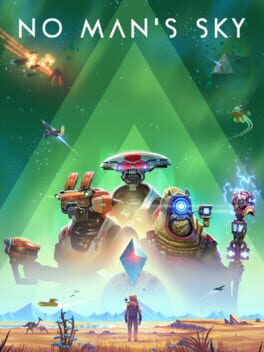
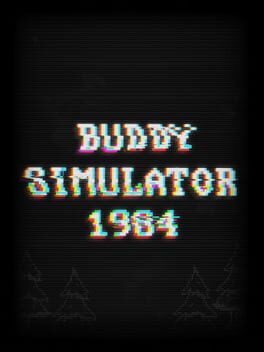




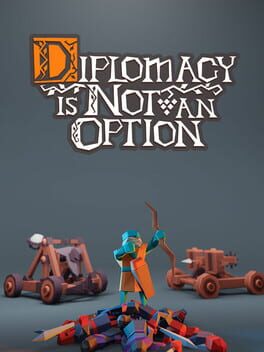




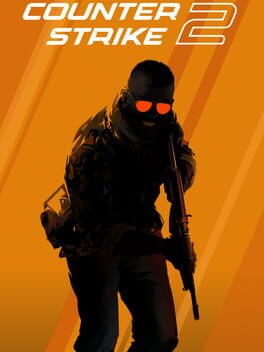



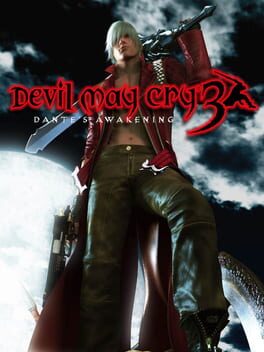
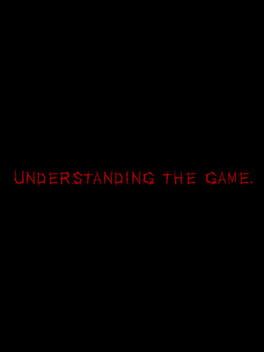
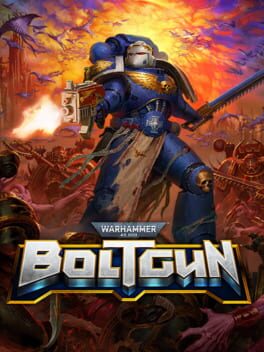


HotPicklePizza
16 days ago